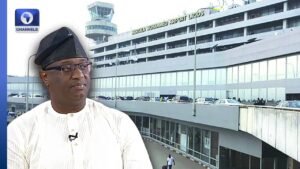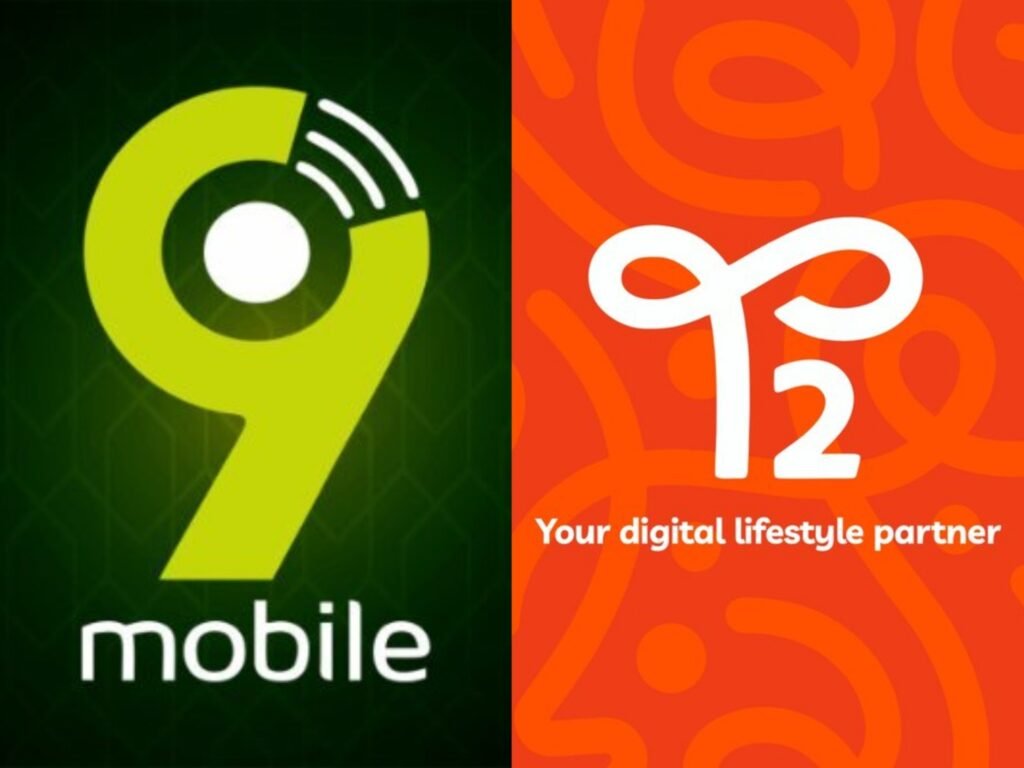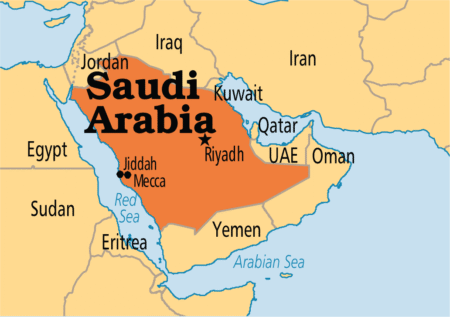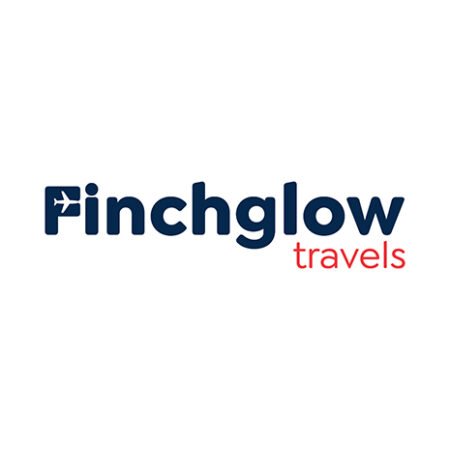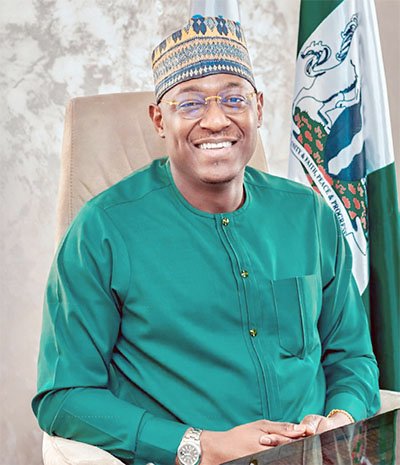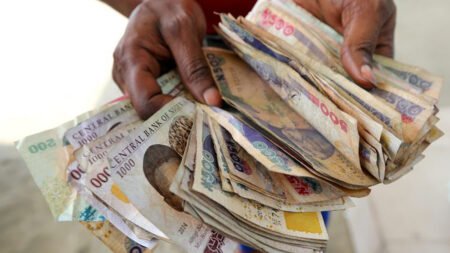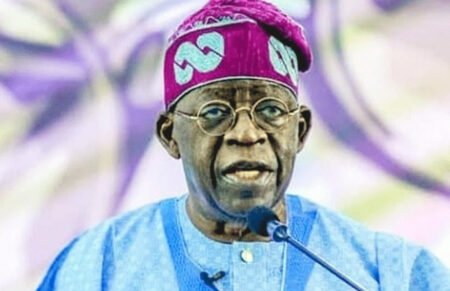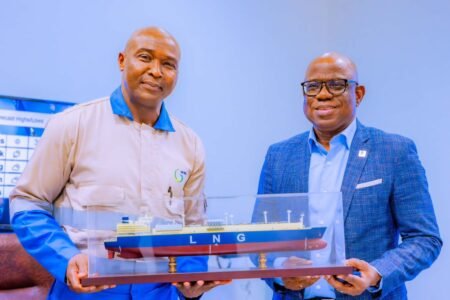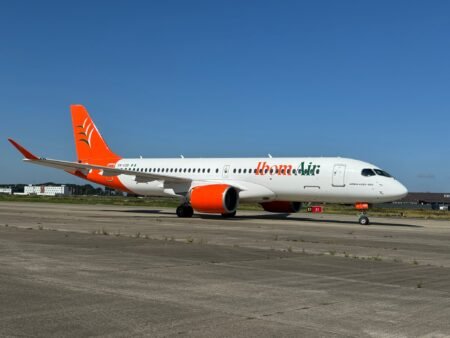Friday’s announcement of the emergence of T2 as the new brand and corporate identity of 9mobile leaves in its trail a legacy of turbulent operations and ownership struggles reaching back to nearly two decades ago, when its first investors arrived in Nigeria from the UAE to obtain a permit.
According to the disclosure, the latest investor is Lighthouse Telecoms, a UK-based firm backed by Thomas Etuh, the chair of Lagos-listed Notore Chemicals Limited. It holds 95.5 per cent of the telco’s shares.
Mr Etuh and his team aspire to position T2 as a “competitive presence in Nigeria’s telecoms landscape,” and have declared the company’s lofty ambition “to lead in innovation, customer experience, and digital lifestyle enablement” in the current phase.
That said, the past tells a different story.
The quest to keep the entity now known as T2 running as a going concern has been dogged by abrupt successions of investors and a jinx that has kept it rooted behind competition right from the very start.
Abu Dhabi-based Etisalat, its first operator, became the fifth licensed GSM operator in Nigeria after it bought a 40 per cent stake held by Mubadala Development Company as a strategic investment in 2007.

Mubadala Development Company, the sovereign wealth fund of the Emirate of Abu Dhabi, had acquired the permit for $400 million earlier in the year.
“Based on our understanding of the market, we believe Etisalat is in the strongest position to bring maximum value to the operations, leveraging its international footprint and operating experience in Africa,” Waleed Al Mokarrab Al Muhairi, the chief operating officer of the fund, said at the point of inking the deal.
Teething problems
Etisalat came into the market with a blistering advertising campaign aimed at helping the brand gain early traction in the market by positioning it to appeal to a street-smart youth population.
At the heart of the promotional strategy was selecting an artiste with a personality and style, which that broad demographic class can easily resonate with, as the ambassador of the brand.
The lot fell on R&B star Banky W, twenty-seven at the time, on whose street credibility the vast popularity and acceptance of the iconic “0809ja for Life” commercials rested.
The company would later (in 2013) introduce the £15,000 Etisalat Prize for Literature, which sought to reward the creativity and ingenuity of first-time fiction writers to further enhance the brand’s reputation. The prize ran only for three years before fizzling out.
Etisalat, which rode on the back of its glittering reputation as one of the world’s fastest-growing telecommunication firms at the point of its entry into Nigeria, soon encountered a mix of financial and operational woes on a scale perhaps never before seen in other markets of its operation.
Nigeria’s demographic strength as the continent’s biggest country by population had positioned it during the GSM revolution in Africa as a promising market for multinational telcos to scale and widen market reach.
However, Etisalat’s late coming into the game as the fifth licensee confined it to the back seat behind big guns like MTN, Airtel (Celtel) and indigenous operator Globacom, all of which had gained a sure foothold on the market years before it arrived.
In 2013, the company obtained a credit facility of $1.2 billion from thirteen Nigerian banks for network expansion and refinancing a loan it had taken earlier. A devaluation of the naira caused the foreign currency-denominated facility to surge in local currency, straining finances and setting it up for a messy debt crisis.
Following a series of payment defaults, the lenders refused to consider the option of restructuring the loan, throwing the telco into a debt crisis that forced the Nigerian Communications Commission (NCC) to wade in to rescue the company from collapse.
In June 2017, the lenders took control of Etisalat but hit a brick wall in their bid to transfer the licence as the top industry watchdog insisted that telecom licences cannot be transferred under the law, only licensees.
Majority owner Emirates Telecommunications Group Company’s decision to withdraw its 85 per cent interest towards the end of the month compounded the woe.
The remaining 15 per cent was held by Emerging Markets Telecommunications Services, which was represented on the board by Hakeem Belo-Osagie, who was Etisalat’s chairman
A year earlier, he had been fingered among myriads of global corporate executives and investors that used shell companies to conceal their wealth in tax havens, whose activities the Panama Papers Investigation brought to light.
A statement said that Mr Belo-Osagie decided against an earlier plan to quit his position in the heat of the takeover move by the creditors to see how the restructuring at Etisalat would pan out.
As of November 2014, he was Africa’s 41st richest person, his net worth standing at $600 million.
He handed in his resignation after the approval of the restructuring plan was granted.
Etisalat’s subscriber base, which touched 22 million between 2014 and 2015 when annual growth was as high as 18 per cent, had fallen to 20 million by the time Etisalat ended its management agreement with its Nigerian subsidiary and announced its exit from the country.
Then came 9mobile
In July 2017, NCC gave the nod for changing the name to 9mobile to ease transition and rebranding plans.
New investor Teleology Holdings, founded by Adrian Wood, MTN Nigeria’s former CEO and eleven others, gave a shot at acquiring 9mobile in 2018 by making a non-refundable $50 million down payment. It exited the deal abruptly two months later.
“Fifteen Teleology experts have worked since June 2017 on detailed 9mobile turnaround planning, development strategies and financial restructuring. This included lining up more than $500 million in fresh direct foreign investment from international institutions,” Mr Wood said.
“9mobile is an exciting opportunity to build a revolutionary mobile network that could be the pride of Nigeria, unfortunately, it appears that we will not be able to participate. We now must stand down from further work on the 9mobile project,” he added.
In May 2023, the African Export-Import Bank, the senior lender to 9mobile, endorsed the deal, allowing LH Telecommunications Limited to purchase a 95.5 per cent shareholding in 9mobile. The agreement was consummated last July for an undisclosed fee.
That same month, 9mobile issued a statement debunking the media reports that a Lagos court had ordered the telecom operator to pay the sum of N55 billion to Keystone Bank, saying the legal dispute rather involved Teleology, its minority shareholder.
“9Mobile is under new ownership with a 95.5 per cent controlling stake in the business and has not been found liable for the action of its minority shareholder in the suit in question,” the document said.
New kid on the block
“The march has been tedious. The journey has been exhausting. It was faith and love for the country that prompted my foray into the acquisition of the 9mobile business. I knew it was a tough call,” Mr Etuh said in the Friday statement.
The company has noted that adopting the name, T2, is a mark of its progress into the “Transformation” phase of the four-pronged recovery strategy it launched earlier, anchored on stabilisation, modernisation, transformation and growth.
READ ALSO: Again, 9mobile rebrands as T2
In addition to constituting a new board last year, it has entered into a national roaming agreement with MTN Nigeria that will run for three years.
“The agreement allows 9Mobile subscribers to roam seamlessly on MTN Nigeria’s network, fostering industry collaboration and enhancing operational efficiencies,” MTN said in a statement in June.
Read the full article here

